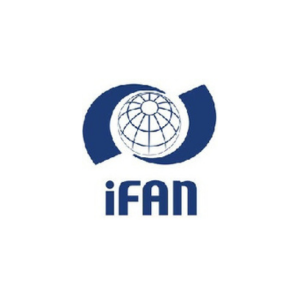IFAN, the International Federation of Standards Users, recently hosted an IFAN AI Workshop. The workshop explored how AI is reshaping the standards ecosystem, from development to implementation. The workshop had a strong turnout, with over 50 participants from the standardization and tech communities. The engagement and interaction during the sessions reaffirmed the importance of cross-sector collaboration in shaping responsible, inclusive, and forward-looking AI standards.
The workshop featured several key topics:
Responsible AI is no longer a Choice: Manoj Saxena, Founder & Executive Chairman of the Responsible AI Institute, delivered a compelling keynote address. He highlighted that 80% of AI projects stall due to lack of governance and trust, and warned of emerging risks such as deepfakes, rogue agents, and hallucinating chatbots. Saxena advocated for third-party verification frameworks and shared case studies from NatWest Bank, healthcare systems, the US Government, and Mastercard to illustrate successful implementations of responsible AI. He emphasized the real-world impacts of AI and highlighted that responsible AI is no longer optional. Saxena also discussed the evolving role of standards professionals in this context, noting that the role of standards development professionals is also evolving. They are more involved in the implementation of responsible AI practices rather than just the development of rules and guidelines.
Implementation of AI within SDOs: This dynamic panel included speakers from INCITS, UL Standards and Engagement, and ISO. The panel discussed how AI is enhancing standardization processes and driving innovation. This session focused on the role of standards being developed within relevant standard committees, such as ISO/IEC JTC 1 SC 42 in implementing AI solutions responsibly, how GenAI is being used to help non-native speakers communicate and contribute effectively to standards development, and guidelines and tools being rolled out for standardization participants. The panel underscored the importance of AI education and future skills development. Panelists stressed the need for standards professionals to acquire new competencies to effectively interact with AI tools. The panel made it clear that AI in standards is here to stay and will continue to further increase efficiency, collaboration, and coordination, making the standardization system more effective.
AI Lab – Use Cases: The hands-on AI Lab showcased real-world use cases in standards development, research, and implementation. Three organizations showcased innovative AI applications in standardization workflows:
- InfoBeans: Demonstrated a RAG-based chatbot for navigating standards documents, featuring equation parsing, image recognition, and human-in-the-loop design.
- Get More Brain: Introduced 'Standards as a Service' (STS), offering personalized access, bundling, summarization, and integration with training workflows.
- Accuris: Presented the Engineering Workbench platform with semantic search, smart compare, micro alerts, and dynamic linking for traceability and requirements management.




